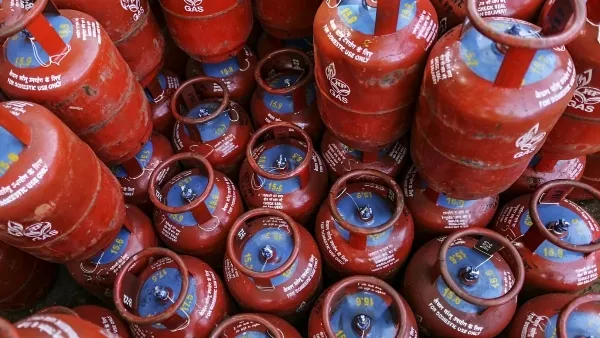Amidst complaints from delivery boys, a new safety check system for cooking gas connections was implemented; reports
According to The Hindu, oil marketing companies (OMCs) have implemented a safety check system for household cooking gas hookups in an effort to improve safety protocols and allay customer worries.

This new approach requires delivery staff to thoroughly examine eight locations in order to guarantee that all homes are operating at the highest possible safety standards. The project is a proactive reaction to long-standing problems with gas leaks and customer discontent with conventional safety procedures.
Delivery staff members are provided with a specific mobile application to expedite the inspection procedure as per the recently implemented policy. They are directed to carefully evaluate a number of factors, such as the state of the orange Suraksha hose, the stove’s location with regard to the gas cylinder, and the appropriateness of the regulator being used—which has to match the corresponding OMC. Furthermore, delivery staff are required to notify customers about the 1906 emergency hotline in the event of a gas-related emergency and provide them with rapid assistance.
Additionally, the safety check gives customers the chance to quickly resolve any possible problems. If the Suraksha hose shows indications of wear or has to be replaced, it may be fixed during the safety check, guaranteeing homes a safe and reliable gas supply all the time.
Although distributors have expressed cautious optimism about the project, they have doubts about its effect and execution. There have been concerns expressed about how long the safety check would last, and there is some doubt as to whether it will replace the yearly necessary checks that customers had to pay for in the past. Distributors stress that in order to properly simplify procedures, there must be clarity on the operational features of the new system.
Additionally, delivery staff members have voiced concerns about the extra burden that the safety check imposes. If any one of the eight inspection criteria is not handled to a satisfactory degree, reservations may be canceled and a new reservation may be necessary. Delivery staff are unhappy about this, and some of them have admitted to just checking off the boxes on the checklist in order to avoid having their reservations canceled.
Anecdotal data indicates that gas leaks are still a major worry for customers, which is often related to the interior components of the gas cylinder’s integrity. Industry insiders point out that a large percentage of reported leaks are caused by internal cylinder O-ring deterioration, which is often made worse by the use of contemporary regulators. The switch to more modern regulators in an effort to maximize efficiency has resulted in a rise in O-ring damage cases because of differences in design.
The problem has become more complex due to the use of plastic components in current regulators and the brass lips on cylinders, which has led to a rise in gas leak reports. In spite of these obstacles, stakeholders are improving safety procedures and resolving customer complaints to guarantee the continuous safe use of cooking gas in homes.






